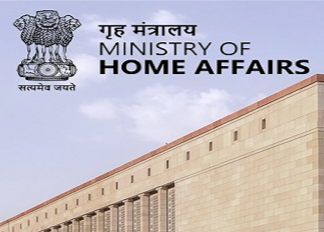The Central government on Monday notified rules for the implementation of the Citizenship (Amendment) Act, 2019.
The Ministry of Home Affairs issued a gazette notification, informing about the implementation of the Citizenship (Amendment) Rules, 2024.
The Rules will enable the persons eligible under CAA 2019 to apply for grant of Indian citizenship.
This will amend the Citizenship Act, 1955 to provide Indian citizenship to migrants from Afghanistan, Bangladesh and Pakistan belonging to Hindu, Sikh, Jain, Parsi, Buddhist, and Christian communities, who entered India on or before December 31, 2014, due to religious persecution.
As per MHA, a web portal has been created for the convenience of the applicants as the entire process will be online. The applicants will have to declare the year when they entered India without furnishing any travel documents.
The Ministry said that an empowered committee each will be formed in all the States and Union Territories of the country for granting citizenship under CAA.
Each committee will be headed by the Director (Census Operations) of the state or UT concerned. The panel will comprise members, including an officer in the subsidiary Intelligence Bureau not below the rank of Deputy Secretary to the Government of India (GoI), jurisdictional foreigners regional registration officer concerned, state informatics officer of the national informatics centre of the state or UT, and the Post Master General of the state or UT concerned or a postal officer nominated by the Post Master General, not below the rank of deputy secretary to the GoI.
The Ministry also named invitees of this empowered panel, including a representative from the office of Principal Secretary (Home) or Additional Chief Secretary (Home) of the state or UT, a representative of jurisdictional Divisional Railway Manager of Railways.
Besides, there will be a district-level panel headed by the jurisdictional Senior Superintendent or Superintendent of Post, who will be the Designated Officer.
The panel will consist of the District Informatics Officer or the District Informatics Assistant of the District concerned and a nominee of the Centre.
The committee will have invitees, including a representative not below the rank of Naib Tehsildar or equivalent from the Office of District Collector and a jurisdictional Station Master of Railways, subject to availability.
The quorum of each of these committees will be two, including the Chair.
Both the Lok Sabha and the Rajya Sabha passed the Bill in December 2019. It subsequently got the President’s assent, however, widespread protests broke out in several parts of the country against the controversial Act. The agitation claimed more than 100 lives and left scores injured.
As per the Manual on Parliamentary Work, the rules for any legislation should be framed within six months of Presidential assent or the government has to seek an extension from the Committees on Subordinate Legislation in both Houses of Parliament.
MHA has been taking extensions at regular intervals from the Parliamentary Committee for framing the rules since 2020.
The law exempts the tribal areas of Assam, Meghalaya, Mizoram, and Tripura as included in the Sixth Schedule of the Constitution, including the tribal areas of Karbi Anglong in Assam, Garo Hills in Meghalaya, Chakma district in Mizoram, and tribal areas in Tripura.


